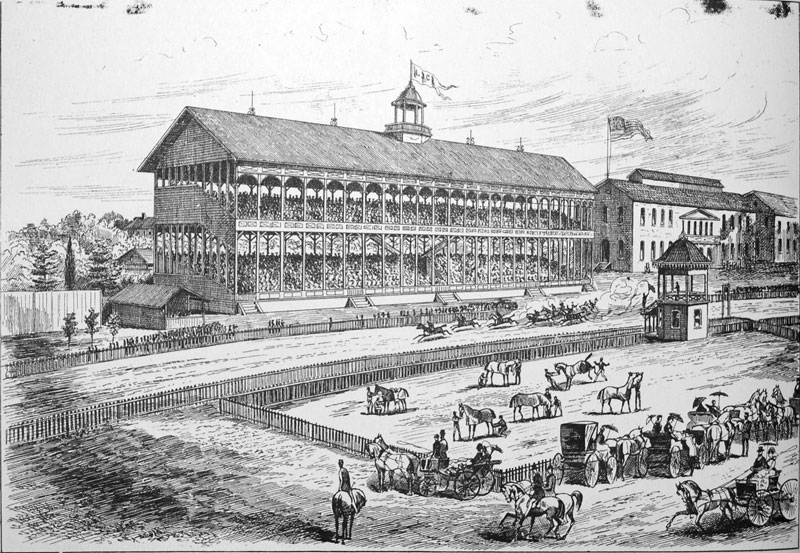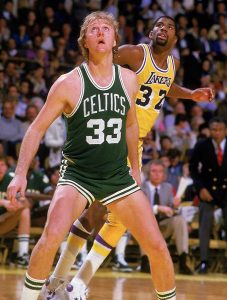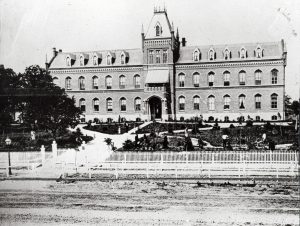Horse racing in North America began almost as soon as Europeans settled the colonies. The first racetrack, called the New Market, was established in 1665 near the site of the present-day garden city of Long Island in New York. Tracks rapidly developed wide appeal among the citizens, and horse racing spread along the Atlantic Coast quickly.1 By the time of the American Revolution, horse racing had already become popular in almost every colony. Moreover, it was moving well into the newly settled areas of the Southwest. Andrew Jackson was a founder of the first racing track in Nashville, Tennessee, in the early nineteenth century. By the 1800s, Kentucky had eight racetracks, due to its native bluegrass being recognized as ideal for grazing horses.2

Horse racing becomes much more important when we analyze life in early American society. Like almost everything else in the life of early America, the world of horse racing was separated by strong lines of class and race.3 For many years, it was considered the exclusive enjoyment for the rich gentleman. In 1674, a court in Virginia gave a fine to James Bullock, a tailor, who proposed a race. It was against the law for a laborer to make a race, and according to the court, horse racing was a sport exclusive to only rich gentlemen. While aristocrats retained control of racing, they were not the only people who participated. Southern aristocrats often trained young male slaves as jockeys for their horses, and northern horse owners employed the services of free blacks as riders. In America, African Americans eventually emerged as some of the most talented and experienced trainers of racing horses. Horse racing became very popular among the public. Despite social and legal pressures, free blacks and poor whites often staged their own informal races.4
Racing also reflected the growing sectional rivalry between the North and the South. In 1824, the Union Race Course on Long Island established an astounding $24,000 prize for a race between two famous thoroughbreds: American Eclipse from the North, and Sir Henry from the South. Surprisingly, the race between Eclipse and Sir Henry was America’s first national event.5 Eclipse won two of the three heats, but Sir Henry prevailed in another such celebrated contest in 1836. These intersectional races, which drew enormous crowds and created tremendous publicity, continued into the 1850s, until the North-South rivalry began to take a deadly turn.6

Horse racing remained popular after the Civil War, but two major developments changed its character considerably. The first development was the successful effort to drive African-Americans out of the sport. At least until in the 1890s, black jockeys and trainers remained central to racing. At the first Kentucky Derby, in 1875, fourteen of the fifteen horses had African American jockeys. Isaac Murphy, a black man, won a remarkable 44 percent of all races, including three Kentucky Derbies. Gradually, however, the same social dynamics that enforced racial segregation in so many other areas of American life penetrated to horse racing as well. By the beginning of the twentieth century, white jockeys and organized jockey clubs had driven almost all black riders and many black trainers out of the sport.7
The second change was the introduction of formalized betting in the sport. In the late nineteenth century, racetracks began creating betting systems to lure customers to the races. Race horses were moving into the hands of enormously wealthy families, and the audience for racing was becoming increasingly working class and lower middle class. The people who now came to tracks were mostly white men, and some white women, who were lured to the races not by the love of horses, but by the usually futile hope of quick and easy riches through gambling.8
As soon as the horse racing ideology was offered to the American society, the public showed great affection. Horse racing has become known as one of the most popular sports in America. Over time its development exposed the changes American society has gone through. Horse racing is still popular in America today, so popular in fact that a three famous races, the Kentucky Derby, the Preakness Stakes, and the Belmont Stakes, known together as the Triple Crown, are still held every May and June.
- Alan Brinkley, American History: Connecting with the Past Volume 2, 15 edition (New York: McGraw-Hill Education, 2014), 156. ↵
- Richard Locker, “Will horse racing and betting make a comeback in Tennessee?” Commercial Appeal, accessed December 6, 2016, http://archive.commercialappeal.com/news/government/state/will-horse-racing—-and-betting-on-them—-make-a-comeback-in-tennessee-327f1df7-521b-7209-e053-010-379234621.html. ↵
- Brinkley, American History: Connecting with the Past Volume 2, 15 edition, 156. ↵
- Brinkley, American History: Connecting with the Past Volume 2, 15 edition, 156. ↵
- Henry Cecil, The Racing Post: A Great Knight (London, Business Insights, 2011), 2. ↵
- Cecil, The Racing Post: A Great Knight, 2. ↵
- Brinkley, American History: Connecting with the Past Volume 2, 15 edition, 156. ↵
- Brinkley, American History: Connecting with the Past Volume 2, 15 edition, 156. ↵



77 comments
Cynthia Perez
Horse riding sounds super fun honestly, competing with others to go at great speeds with a horse. No wonder why people continued to enjoy this. The whole betting thing makes sense however, a lot of people strive on competition and its just a small way to involve making money, especially for wealthy people. The part I didn’t like was of course the exclusion of black jockeys. That’s just insensitive and heartless especially when a lot of winners in these races were black. They earned more than just their place in the horse racing world and it’s harsh seeing that as yet another problem with earlier times. It’s very interesting as well learning how something such as horse racing could represent something so much bigger such as the separation of classes and race.
Roberto Rodriguez
This article was very deceptive, but in a good way. I was surprised to learn so much, I did not think an article of this length could provide so much information. The article is well organized and gives a great brief summary of the sport. I personally had no idea how old the sport was in America and it is kind of crazy (and sad) to think about just how much it has digressed in popularity. Granted I do not know too much about the fanbase of horse racing in the 21st century, but I do feel like I would not be alone in saying that horse racing is not very popular. I am sure that racial segregation and exclusivity of the rich played a major role in the sport’s decline.
Juan Arceo
I, surprisingly, have never ridden a horse but I have had experience with horse racing thanks to my friends who have gone to these events and by them actually having experience competing in them. Its crazy to believe that horse races have been around for so long and to see how they actually have gotten so popular thanks to the Kentucky Derby which also blows my mind because people now will bet an insane amount of money when originally, it was not meant to be like this.
Mara Martinez
After being involved in horses for as long as I have, I truly had no clue that racing had been around for this long! That is so surprising. It really has grown into an amazing sport, while some people don’t truly agree as to what it really is about. Most people really do care about their horses and want them to grow, back then and now.
Vanessa Sanchez
Who could have known that horse racing has been out for so long. I love going to watch horse race haven’t yet gotten to ride one but it is for sure in my bucket list. Something that completely took me on surprise about this is that in fact formalized betting was not part of horse racing. What I saw that was extremely involved in the sport is betting and this completely contradicted my opinion. That was not expected and interesting to know about.
Cameron Lopez
My family and I own our own horses and I’ve been riding horses since I was young. I loved riding my horse as fast as I can and teaching it to reach new limits. But I had no idea how long horse racing dated back to, such a simple doing but took a lifetime to master, I would of never guessed how long it really took for this to take shape and become what it is today.
Noah Bolhuis
Horse racing is such a simple sport, yet I wouldn’t have guessed how long it has been in American culture and society. Additionally, I also would have never guessed that the Civil War had a major impact on how the sport was conducted. The biggest thing that I took from this article is that formalized betting was not a part of horse racing, and that blows my mind as it is all I associate with the sport.
Indhira Mata
I had no idea that horse racing had started in the 1660s. It seemed like too early for something like that to start. Although after reading the article it makes more sense. The United States were going through the civil war and during that time they used horses in alot of their battles. The one with the strongest and fastest horse would win the battle. Horse races are typically something that rich people do till this day so not much had changed.
Belene Cuellar
I get the whole appeal of horse racing and how many people came together not to socialize, but to gain easy money by gambling. This article went into great detail by explaining how horse racing was created and the type of people that participated in the sport. I am saddened to think about the conditions the trainers and the jockeys were given. I wish this article would’ve gone into detail about how the horses were treated in this sport.
Lamont Traylor
Horse racing is a great way to test your luck and make some quick and fun money. It’s surprising to me how many people take in interest in horse racing. I love to gamble being from Vegas, but I think that the fun in horse betting would get old and I feel like since the chancing of you winning big are slim, it would be a waste of time.